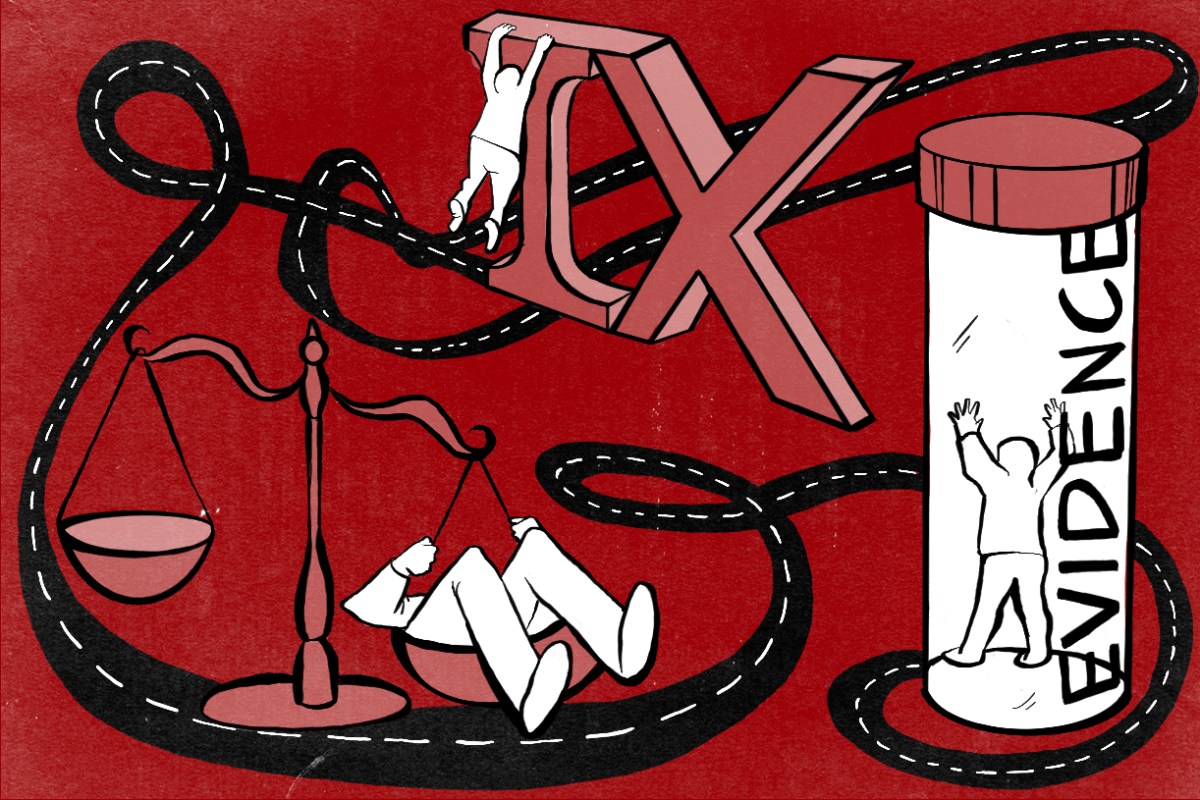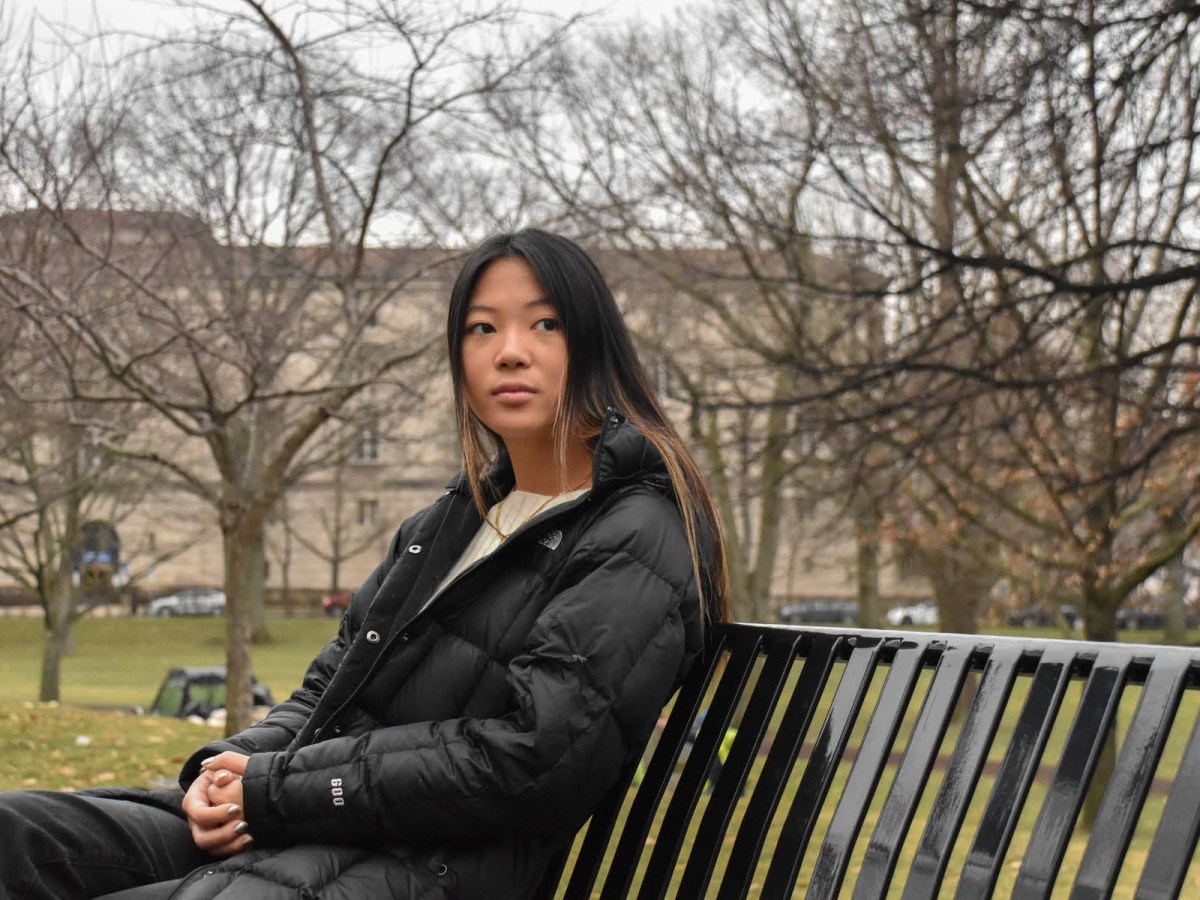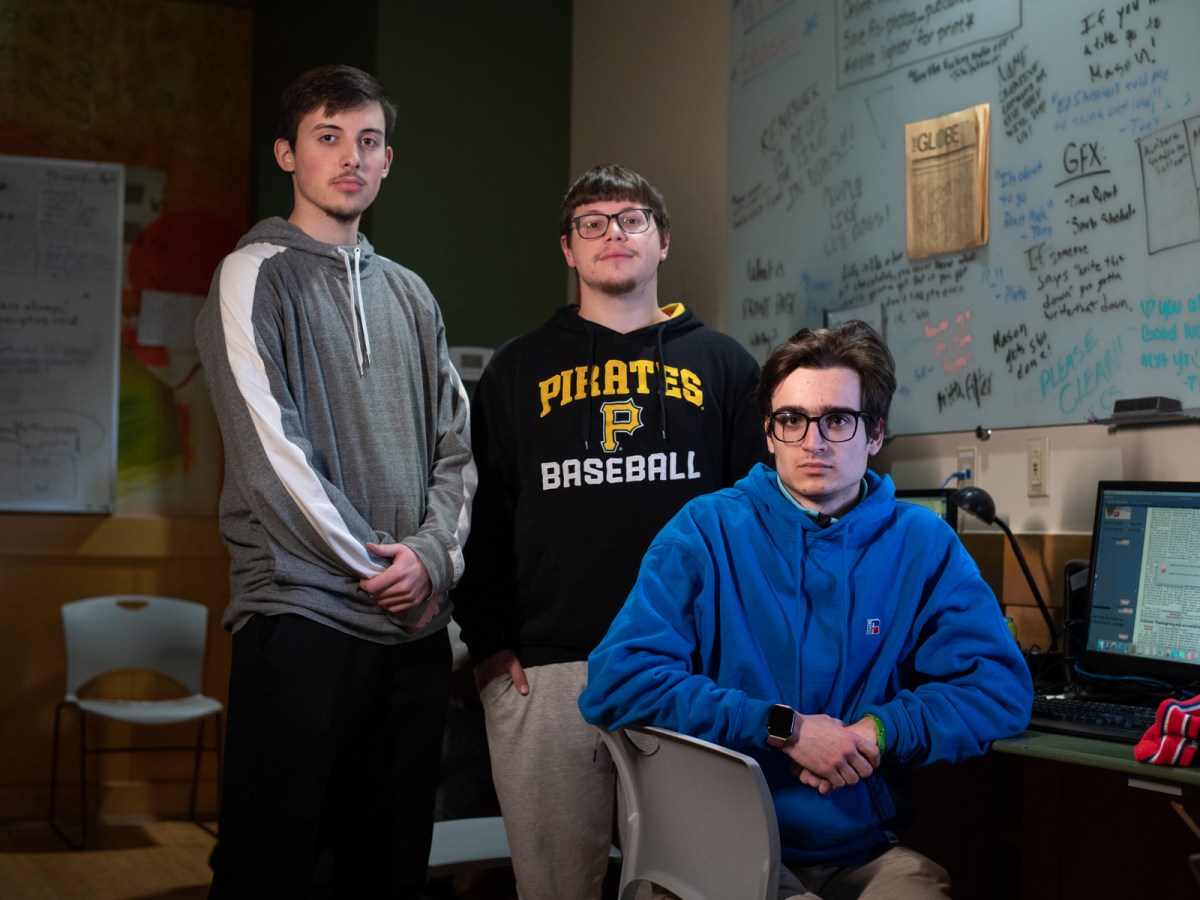Content warning: This story contains references to sexual violence.
Every survivor of sexual violence embarks on their own journey of seeking healing and justice at some point. But oftentimes, they aren’t sure where to start.

More than half of sexual assaults among college students occur in the fall. Resources, survivor stories and investigation into what’s being done to protect those at risk in the Pittsburgh area. Explore the series.
If you’re a college student who has experienced sexual violence, there are resources and options available to you in the Pittsburgh region and at your university. Advocates, university officials and legal and healthcare professionals who spoke with PublicSource encourage survivors to know their rights and choices and what to expect from the available options.
Healthcare providers could assist with emergency care and evidence collection. Therapy could help with mental health. Community could translate into support and advocacy. Title IX, a federal law, could be your legal tool.
Justice could mean a lot of things: For some, it’s going through the criminal justice system, while for others, it’s following the Title IX process. Either way, it’s possible these paths may not end with the outcome you’re hoping for. No matter the institutional results, receiving early validation and support from others is frequently crucial, said Megan Schroeder, director of victim response at Pittsburgh Action Against Rape [PAAR].
More Red Zone stories
“We have a lot of conversations with our clients around not holding on to that specific outcome, whatever it is,” Schroeder said. “We really want to think about, along the way, ‘How could we infuse that support or that validation for you so that you can really pull something that you need out of this process, regardless of how it turns out?’”
PAAR has provided counseling and support to survivors for 50 years. The organization operates a 24/7, confidential hotline at 1-866-363-7273, which may serve as a helpful starting point. When you call, counselors walk you through your options, provide support and help you access resources and services.
PAAR’s website states that advocates can join you anytime at hospital emergency rooms and police stations in the county, explain your university’s policies and provide information on reporting to the police and moving forward with a civil case, among other options. You can find more information on PAAR’s services here.
As you begin your healing journey, here are additional resources and options that may help you.
Seeking medical care
Amanda Ringold, a nurse practitioner in UPMC Magee Womens Hospital’s Emergency Department, encourages students who believe they’ve experienced sexual violence to reach out to a healthcare provider even if they are not sure that they were assaulted.
“It’s always better to be safe than sorry,” Ringold said. “People will come and say, ‘Well, I’m not even sure if anything happened. I was drinking and I fell asleep. And now my pants are on inside out.’”
Receiving medical attention as soon as possible can help with evidence collection, if that is an option you’re seeking. UPMC recommends that survivors refrain from changing their clothes, eating, drinking, brushing their teeth or taking a shower until they’ve received care. If you’ve already done any of this, bring the clothes you were wearing with you — evidence can still be collected, according to PAAR.
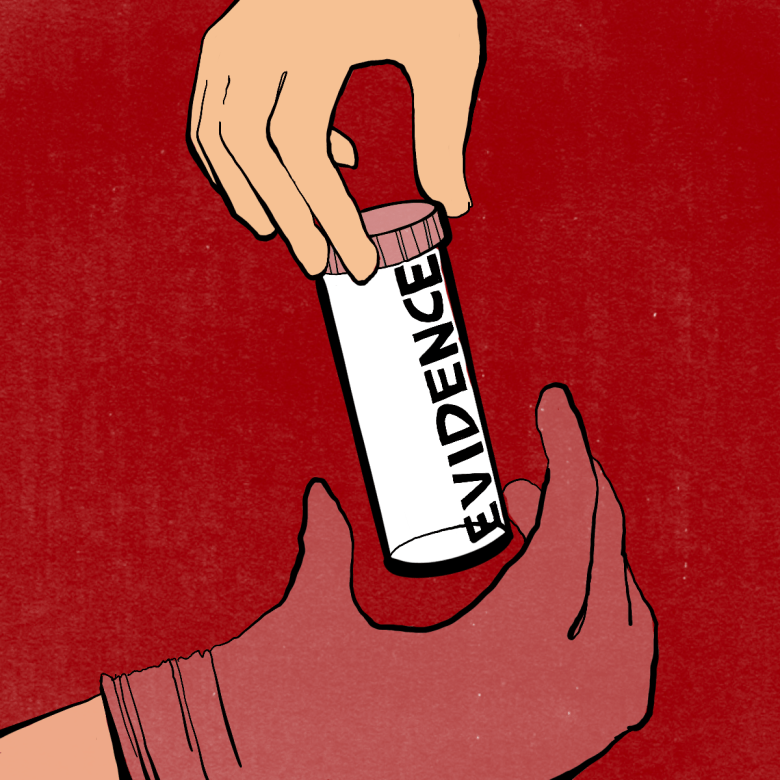
At UPMC Magee, medical professionals talk to survivors about resources, offer a sexual assault exam or “rape kit” and connect them with therapy support through PAAR as soon as possible, Ringold said. The hospital calls a PAAR advocate immediately upon a survivor’s arrival.
In Allegheny County, nurses specifically trained in caring for survivors are listed as being available at UPMC Magee and UPMC Mercy.
“We have a specific room. It’s got a shower. It’s kind of back in the corner, a little quieter for them,” Ringold said of UPMC Magee. “In the room, [we] do a basic assessment, make sure they don’t have any immediate medical, emergency medical needs, and then we will talk to them about all their options, about getting evidence collection, talking to law enforcement.”
Hospitals are able to treat survivors and collect evidence even if the person has not reported or does not want to report to the police. The patient’s wishes are paramount, Ringold said, and if they choose, they can receive a sexual assault exam. This could include taking saliva and fingernail samples and providing medicine to prevent infections, according to UPMC.
“We can medically screen them and make sure they’re physically OK and offer them any medication prophylaxis for STDs, pregnancies, HIV and let them go,” Ringold said.
You can contact UPMC Magee’s emergency services line at 412-641-4950.
Reporting to your university
Filing a complaint through your university’s Title IX office may allow your university to conduct an investigation and will require the institution to provide you with supportive measures. Your university may be able to connect you with counseling, allow you to take a leave of absence or help you have a more manageable course load, among other forms of support.
A support you may find valuable is a no-contact order, which universities can provide to prohibit you and the person who harmed you from directly contacting each other. You may also be able to request that your university change your campus housing or schedule.
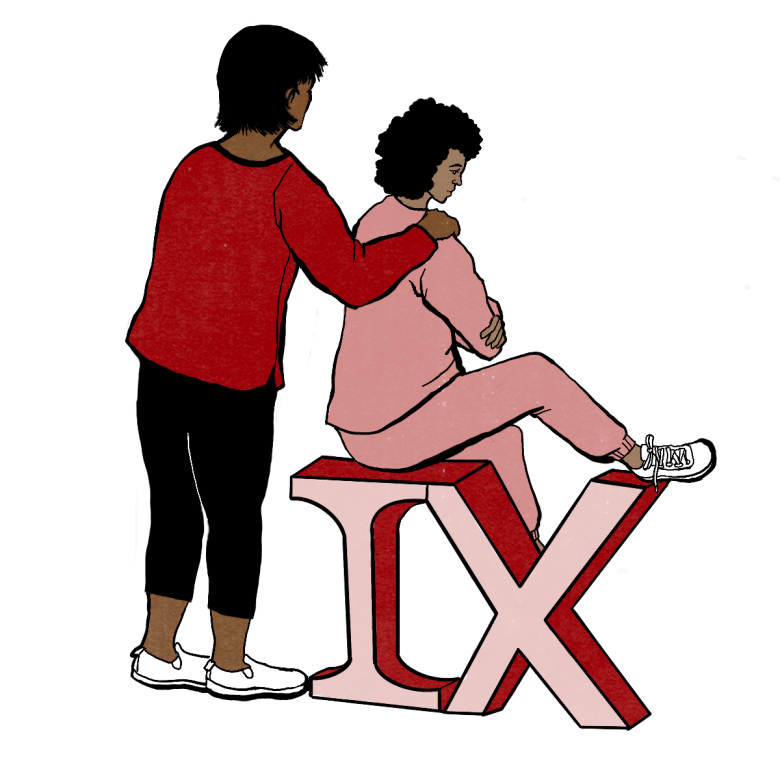
To receive these accommodations, you’ll need to file a confidential report or a formal complaint with your university, according to Know Your IX.
Katie Shipp, a partner at Marsh Law Firm, advises students to find their university’s Title IX policy, identify the Title IX coordinator and report their assault. “That’s something that people should be looking into and exactly what they have to do in order to make a complaint that’s going to trigger an investigation.”
PAAR can also inform survivors of their rights under Title IX, perhaps with a clearer and more trauma-informed approach than a university, said Susie Balcom, a PAAR advocate.
“Sometimes, there’s more trust between us and the students that do come because we’re not working for the university,” Balcom said. “We can answer more nuanced questions, like, ‘What does this legalese information mean?’ — where the Title IX office can’t really step into that space as much.”
Here are university-specific websites that provide information on reporting under Title IX, including portals and forms to file reports:
- University of Pittsburgh: https://www.diversity.pitt.edu/civil-rights-title-ix-compliance
- Carnegie Mellon University: https://www.cmu.edu/title-ix/
- Duquesne University: https://www.duq.edu/about/departments-and-offices/risk-management/sexual-harassment-and-sexual-misconduct/title-ix-sexual-harassment
- Chatham University: https://www.chatham.edu/student-experience/transportation-and-safety/title-ix.html
- Carlow University: https://www.carlow.edu/title-ix/
- Point Park University: https://www.pointpark.edu/studentlife/titleix/index
- Robert Morris University: https://www.rmu.edu/about/titleix
- La Roche University: https://bit.ly/3C2J5WU
- Community College of Allegheny County: https://www.ccac.edu/diversity/title-IX.php
Under Title IX, universities can consider evidence beyond what could be collected in a hospital. Journal entries, correspondence, text messages, photos and any witnesses willing to corroborate the report also matter.
Because memory, especially at the time of trauma, can be vulnerable, legal experts recommend that students record everything they remember about the incident.
If you pursue a formal complaint, Shipp said what follows is “a court-like proceeding.”
- Your Title IX office will interview you, and the perpetrator will get a summary of the allegations and have the ability to speak with counsel.
- The Title IX office will interview the perpetrator.
- The Title IX office will decide whether to start an investigation after which the university may bring in a third-party investigator.
- A hearing will take place at which each party is eligible to have an adviser, who can be an attorney. At this time, you may be subjected to cross-examination.
- The university will issue a decision and provide an opportunity to appeal. If the perpetrator is found responsible, the university may impose sanctions like withholding of a degree, expulsion from school, a written apology letter or a suspension.
Under current Title IX guidelines, schools are not required to respond to complaints that occur outside of campus, Shipp said. There is also no time limit, so the Title IX process can be drawn out. The Biden administration recently proposed additional changes to how complaints are handled, which are currently under review.
Seeking mental and emotional health support
Participating in therapy or counseling can help you begin to process your experience and heal. It’s common for survivors to feel a variety of emotions after their trauma or to experience anxiety, depression or post-traumatic stress disorder.
In the state of Pennsylvania, survivors of sexual abuse who are over the age of 18 can apply to the Pennsylvania Commission on Crime and Delinquency to receive up to $5,000 in counseling services — without having to report to the police.
Sign up for PublicSource’s SELVES newsletter
Get stories about abortion access, women’s rights, threats to the LGBTQ+ community and other marginalized people in the Pittsburgh region.
“For most people, it ends up being enough money for a year or more of therapy, which can just make all the difference,” Balcom said. “That can be really intensive trauma therapy, that can be something different.”
To apply, you’ll need to fill out this form. On the form, you’ll fill out some personal information, including your name, address and Social Security number as well as the approximate date and location of your assault. You’ll also need to provide contact information for your counseling provider.
PAAR’s professionally trained therapists also offer individual and group counseling for adults as well as support groups specifically for men, college students and members of the LGBTQ community.
- Call 412-431-5665 for information on PAAR’s therapy offerings.
- You can find a full list of PAAR’s available support groups here.
- Rape, Abuse, & Incest National Network [RAINN], a national anti-sexual violence organization, has also compiled resources for self-care after trauma, which you can find here, and information on finding a therapist, available here.
Balcom, who works with PAAR’s Victim Response Team, describes the alternative paths survivors can take and the challenges they may face along each, likening it to a series of roads. Survivors can walk down “Criminal Justice Avenue,” for example, and that proverbial walk may take two years or more but then that road may be closed and you have to turn around and take other turns.
“I like using the metaphor of the roads because there’s so many roads that we can take,” Balcom said. “Some of it looks like therapy, some of it looks like advocacy work of their own. I mean, you name it. And it can be a road toward healing.”
More resources:
Although this article is specifically aimed at college students, all survivors may find resources here that may be useful to them and organizations like PAAR who serve populations beyond students. Here are even more resources to consider:
- Center for Victims offers therapy, legal help and other services. Details are available here.
- Sisters Place offers walk-in social services. For more information, visit here.
- Women’s Law Project is a nonprofit legal organization focused on women’s and LGBTQ rights. Visit here.
- Pennsylvania Coalition Against Rape offers information, resources and advocacy here.
- Free 24-hour National Sexual Assault Hotline: 1-800-656-4673
Illustrations by Andrea Shockling.
Emma Folts covers higher education at PublicSource, in partnership with Open Campus. She can be reached at emma@publicsource.org.
Mila Sanina is an independent journalist and assistant teaching professor of journalism. She can be reached at mila.sanina@gmail.com.
This story was fact-checked by Matt Maielli.
This project has been made possible with the support of the FISA Foundation.
The Jewish Healthcare Foundation has contributed funding to PublicSource’s healthcare reporting.
Our process
For this project, conducted over six months, PublicSource held interviews in person, on the phone and via Zoom with survivors and then worked with them to corroborate their accounts to the extent possible. We asked for any notes, legal documents, journal entries, emails and texts and/or asked to be connected with people in whom survivors confided at the time. The provided documentation was used to further detail the survivors’ experiences and provide independent verification for our robust fact-checking process.
Reporting on sexual violence requires journalists to adhere to standards of accuracy and fairness while mitigating harm and the retraumatization of survivors.
PublicSource reporters adhered to industry best practices for trauma-informed reporting, including those developed by the Dart Center for Journalism and Trauma. From the onset, reporters strived to ensure survivors understood how their stories may be shared in the project and remained in touch as the reporting process continued.
They practiced empathetic interviewing and worked with survivors to determine how they’d like to be identified. In journalism, anonymity is typically granted to people who have experienced sexual violence. PublicSource provided varying levels of anonymity to those who have shared their stories of sexual violence with us to respect wishes for privacy and to prevent further trauma. Their identities are known to us, and the information they’ve shared has been vetted.
The reporters also reviewed the profiles with the survivors, reading back quotes for accuracy, in an effort to ensure they felt in control of how their stories were told. They remained open to survivors’ comfort levels with participation changing and, as needed, provided opportunities to decide if they’d like to continue.
PublicSource is grateful to the survivors for going through this process with us and sharing their stories with the Pittsburgh community to improve understanding of the risks of sexual violence and its effects on college campuses.
Explore this series
The Red Zone
More than half of sexual assaults among college students occur in the fall. Resources, survivor stories and investigation into what’s being done to protect those at risk in the Pittsburgh area.

